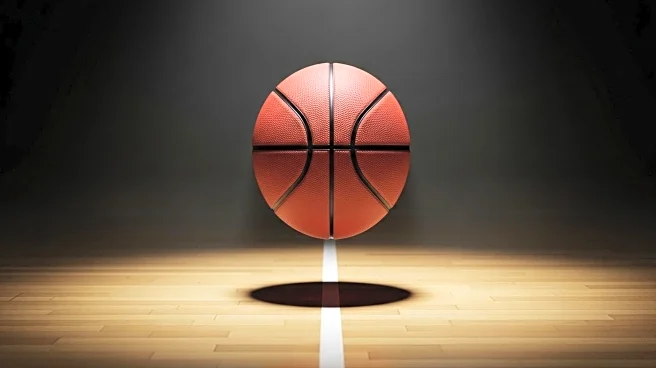What is the story about?
What's Happening?
The NBA has implemented a new rule for the 2025-2026 season that changes how desperation shots are recorded. When a player attempts a last-second heave from 36 feet or deeper during the first three quarters, any miss will not count against the player's individual statistics but will be recorded as a missed shot for the team. This adjustment, approved by the Board of Governors, aims to encourage players to attempt more buzzer-beaters without worrying about the impact on their shooting percentages or future contract negotiations. The rule was tested in the G League and Summer League before being adopted for the NBA season.
Why It's Important?
The rule change addresses a long-standing issue where players were hesitant to attempt long-distance shots due to concerns about their efficiency statistics. These shots, while rarely successful, are crowd-pleasers when they do go in. According to SportRadar data, only 4% of such attempts were successful last season, with players like Steph Curry and Nikola Jokic making a few. The new rule could lead to more exciting moments in games, but it also raises questions about accountability and the balance between entertainment and statistical integrity. Former NBA player Richard Jefferson criticized the rule, arguing that it allows players to benefit from potential highlights without facing the downside of missed shots.
What's Next?
The NBA hopes the rule will lead to more thrilling moments at the end of quarters, but it remains to be seen how fans and players will react. The upcoming season will test whether the change enhances the game or dilutes the importance of individual performance metrics. The debate over the rule's impact on professional sports and player accountability is likely to continue as the season progresses.
Beyond the Headlines
The rule change could influence contract negotiations and player evaluations, as efficiency statistics are often considered in these discussions. It may also affect how teams strategize in close games, potentially altering the dynamics of late-game situations. The broader implications for the sport's culture and the emphasis on entertainment versus competition could be significant.


















